On September 13, 2021, the Digital Leadership Academy (DLA) Training programme was officially launched. The programme was jointly organised by the Ministry of Communication and Informatics of Indonesia, the School of Public Policy and Management, Tsinghua University (SPPM), the Oxford Internet Institute, the Harvard Kennedy School, and the Lee Kuan Yew School of Public Policy of the National University of Singapore. The opening ceremony was held simultaneously in many countries online.
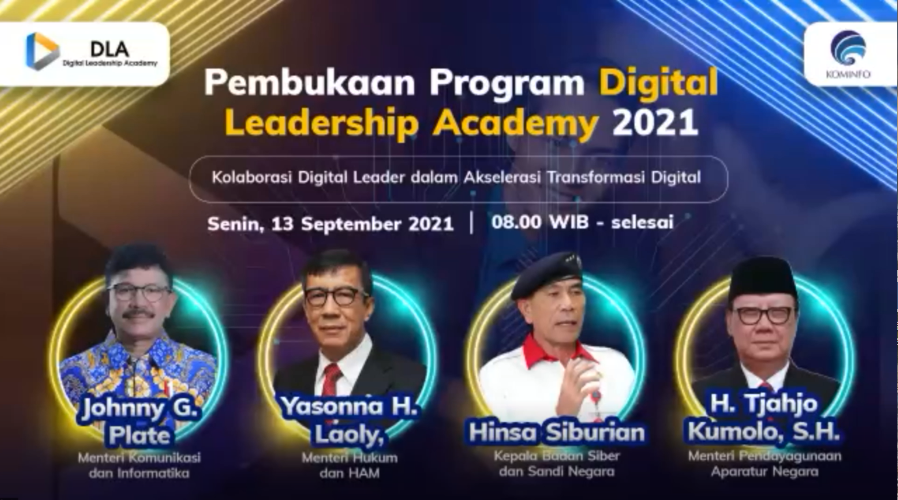
Speaker of the House of Representatives of the Republic of Indonesia, Meutia Hafid; Minister of Communication and Informatics, Johnny Gerard Plate; Minister of Law and Human Rights, Yasonna Hamonangan Laoly; Minister of Administrative and Bureaucratic Reform, Tjahjo Kumolo; Director of the National Cyber Cryptography Agency, Hinsa Siburian; Executive Vice Dean of the School of Public Policy & Management and Executive Dean of the Institute for Sustainable Development Goals of Tsinghua University, Zhu Xufeng, attended the opening ceremony.
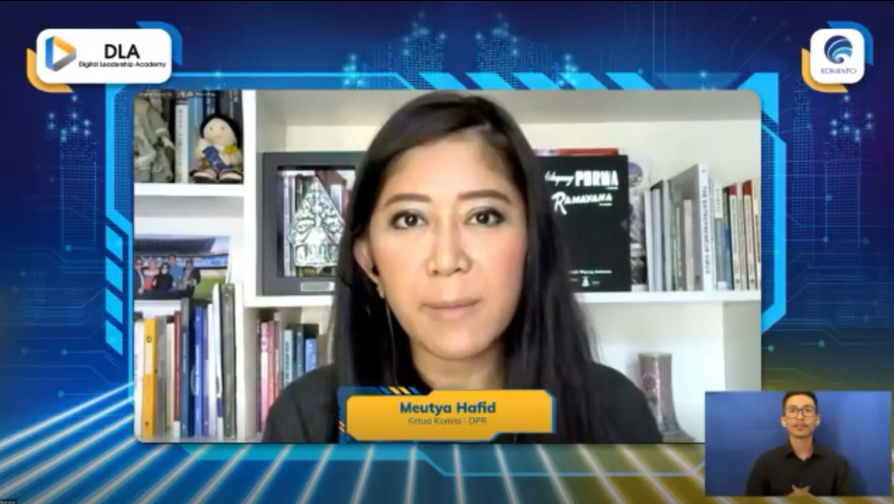
Meutya Hafid
In her speech, Speaker Meutya Hafid mentioned that she is one of the proponents of the Law on Personal Data Protection (“PDP Law”) . She also expressed concern about the security of personal data in digital transformation and pointed out that how to ensure personal privacy security would also be one of the major challenges in digital transformation. She said as a member of the House of Representatives of the Republic of Indonesia, she would lead all lawmakers to provide legal support for Indonesia's national strategy for digital transformation.
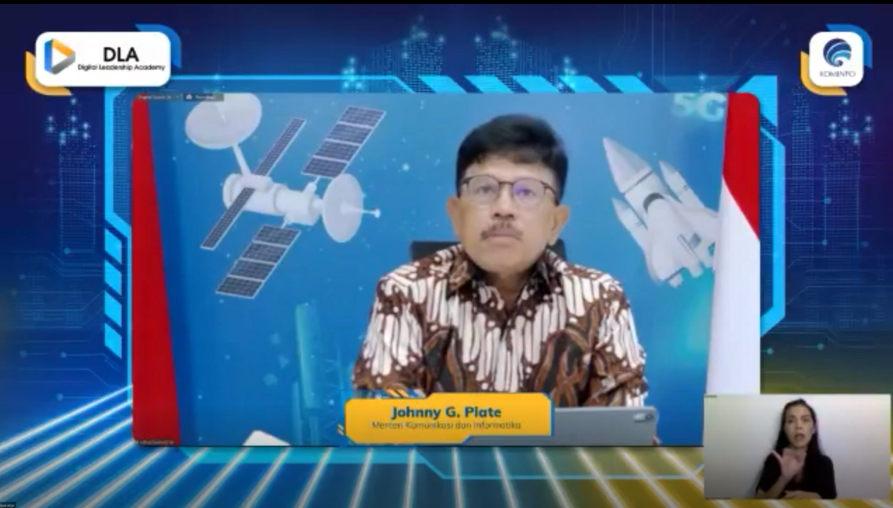
Johnny Gerard Plate
Minister Johnny Gerard Plate pointed out that to seize the development opportunity of digital transformation, Indonesian President Joko Widodo had made important instructions, including: 1) Improve the construction of digital infrastructure; 2) Develope national strategic pathways for digital transformation; 3) Integrate the national data center; 4) Strengthen the human resource reserve in the digital fields; 5) Develope related regulations, fundings, and financing plans for digital transformation. In response to the call for the national strategy of digital transformation, the Ministry of Communication and Informatics of Indonesia had also formulated the "Indonesia Digital Transformation Pathways 2021-2024", included strengthening the development of human resources and founding DLA training programs in cooperation with world-renowned universities. The project aimed to cultivate the digital capacity of Indonesia's senior leaders to improve the competitiveness of Indonesia's digital economy and strengthen the capacity of new bussiness model construction of policymakers, formulate policies that contribute to the development of digital industries and economy, and ultimately fulfill the well-being of the Indonesian people.
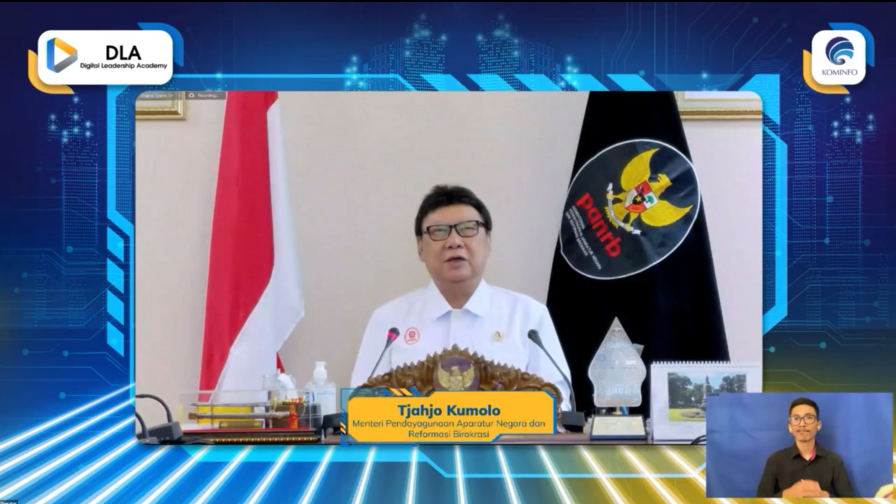
Tjahjo Kumolo
Minister Tjahjo Kumolo, in his keynote speech titled "Cultivating a National Leader in the Era of Digital Transformation," shared 7 core values of human resources on Indonesian public servants: 1) Service-oriented, providing quality services to the society; 2) Sense of responsibility, getting trust from the people; 3) Learning capacity, focusing on continuing education and ability improvement; 4) Coordination and integration, respecting social and cultural differences between different groups; 5) Loyalty, actively contributing to the well-being of the country and the people; 6) Adaptability, meeting the development challenges with innovation; 7) Cooperation, enhancing the collaboration between departments and organizations.
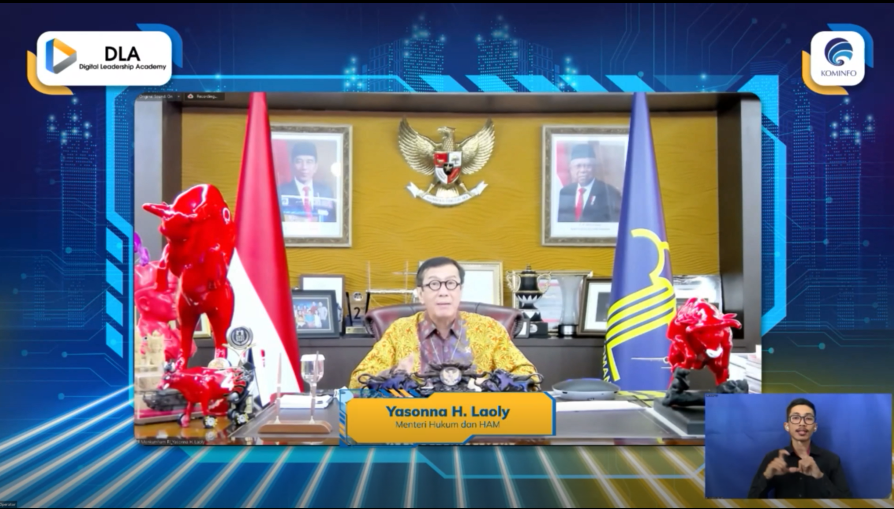
Yasonna Hamonangan Laoly
In his keynote speech titled "Establishing Regulations to Support Digital Transformation," Minister Yasonna Hamonangan Laoly shared some practical experience of the Ministry of Law and Human Rights in transitioning from e-government to e-governance. In the past, Informatic Communication Technology (ICT) was mainly used as a tool to expand government service coverage. While now it is more oftenly used as an effective tool to improve the function and structure of the governmental administrative system. The transition can be carried out from the following 5 aspects, including 1) Start from the top leadership to face the challenges of the digital revolution positively; 2) Laid down plans and targets for IT development 3) Formulating laws and regulations based on IT 4) Reserving and developing competent IT personnel; 5) Engaging the Ministry of Law and Human Rights and build it into a public sector that promotes the development of information technology.
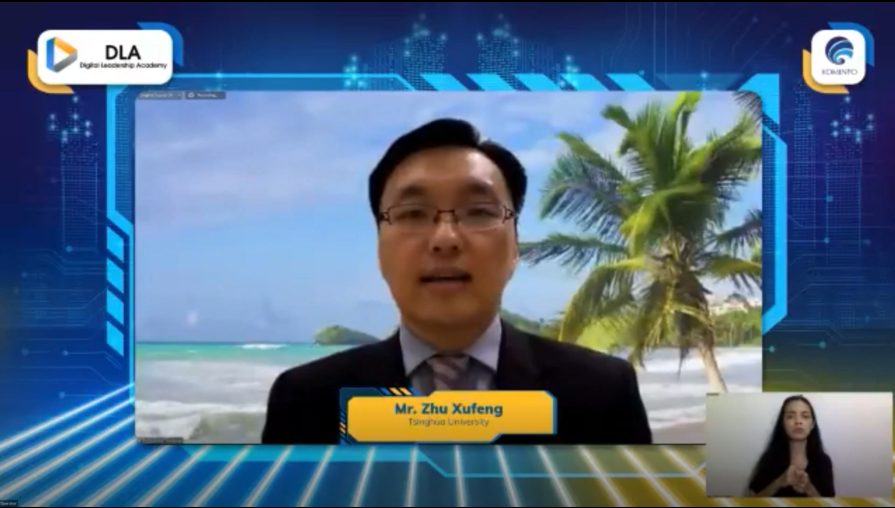
Zhu Xufeng
As the representative of the organiser, Professor Zhu Xufeng recalled the history of cooperation between Tsinghua University and the Indonesian government in his opening speech. In 2018, with the strong support from the Indonesian government, Tsinghua University constructed its Southeast Asia Center in Indonesia and set up the Master's degree programme - Master of Public Administration in International Development (MID). Professor Zhu said he was honoured to witness the new cooperation in personnel training being built up- "the DLA training program" and expressed his sincere congratulations to the attendants. Professor Zhu believed that in the Digital Transformation of Indonesia, senior leaders' understanding and coping capacity of the transformation, the process of policymaking, and the combination of business development and technological innovation are all key factors. How to effectively integrate these elements, to seize the development opportunity, and to keep up with the pace of the high-speed digitalizing world are crucial in meeting the challenges of transformation. Finally, Professor Zhu hoped that the DLA programmme, as a remarkable starting point of the journey, could become a bridge connecting China, Indonesia, and the rest of the world to deepen understanding, strengthen cooperation, and promote mutual learning and development.
The DLA training programme is a high-level leadership training program jointly organised by the MCI of Indonesia with well-known universities from China, the United States, the United Kingdom, and Singapore - Tsinghua University, Harvard University, Oxford University, and the National University of Singapore. This programme aims to enhance digitalizing capacity of Indonesia's senior leaders in politics, business and academia. The programme covers 4 themes -“Digital Transformation of Smart City" "Digital Economy and Transfromati" "Digital Transformation of Government" and "Digital Transformation of policy and practice," and is proceeded in four stages. The Stage two - “Digital Economy and Digital Transformation," being hosted by the MCI of Indonesia and SPPM, will be carried out in October this year. The programme will also be co-hosted by the Institute for Sustainable Development Goals, Tsinghua University and the Cadre Education Center of SPPM .

